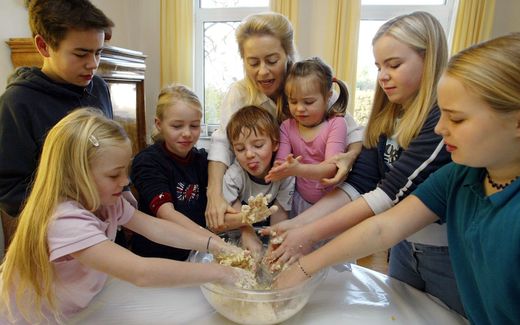Dutch study: economical insecurity reason for fewer childbirths

Especially among the unemployed, it can be seen what subsistence insecurity brings about in families. Photo ANP, Evert Elzinga
Western Europe
A new study has shown that financial uncertainty leads to fewer childbirths in the Netherlands. The age at which women have their first child is also rising.
Especially among the unemployed, it can be seen what subsistence insecurity brings about in families. Among both men and women, the probability of choosing to have children halves if they live on benefits, writes the Dutch daily De Volkskrant. The influence of a flexible contract is also significant: the probability of a male flexible worker choosing to have a first child is 8 per cent lower than for men with a permanent contract. For women, this is even 20 per cent.
For men, income plays a more significant role. Men earning less than 1,500 euros are half as likely to choose fatherhood as those earning double that amount. For women, the reverse is true: low-income women are likelier to become mothers than those with higher incomes. Van Wijk: 'I think because we still live with the traditional idea that the man is the breadwinner.'
According to De Volkskrant, the study confirms something that has long been thought: the precarious position of young adults is partly to blame for the ever-decreasing number of children. Dutch couples had an average of 1.49 children last year, fewer than they would like. Moreover, the age at which women have children has risen to 30.3. "Where previously the increased labour participation of women was pointed to for an explanation, deteriorating economic conditions are now being looked at. Young adults' incomes have stagnated, they have study debts and are much more likely to have temporary contracts," Van Wijk argues. In addition, it has become more expensive to have children. "Partly because of higher costs, partly due to increased house prices, and partly because we have higher demands on parenthood."
In June, research by Dutch insurance company Aegon revealed that the tightness of the Dutch housing market is causing young people to postpone starting a family. According to Aegon, the social consequences of finding suitable, affordable housing are significant. "In particular, young people living at home for longer, older people finding it harder to move on to more suitable housing, postponing cohabitation and waiting to start a family is widely recognised," Aegon's Maarten de Rooij told Dutch public broadcaster NOS.
Related Articles






